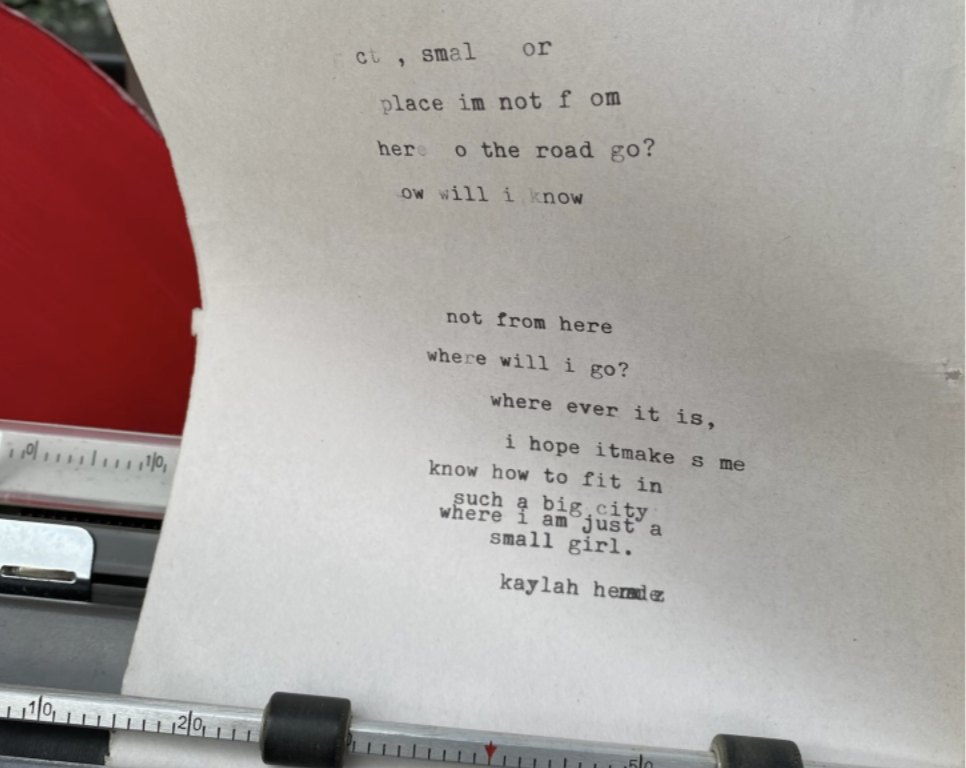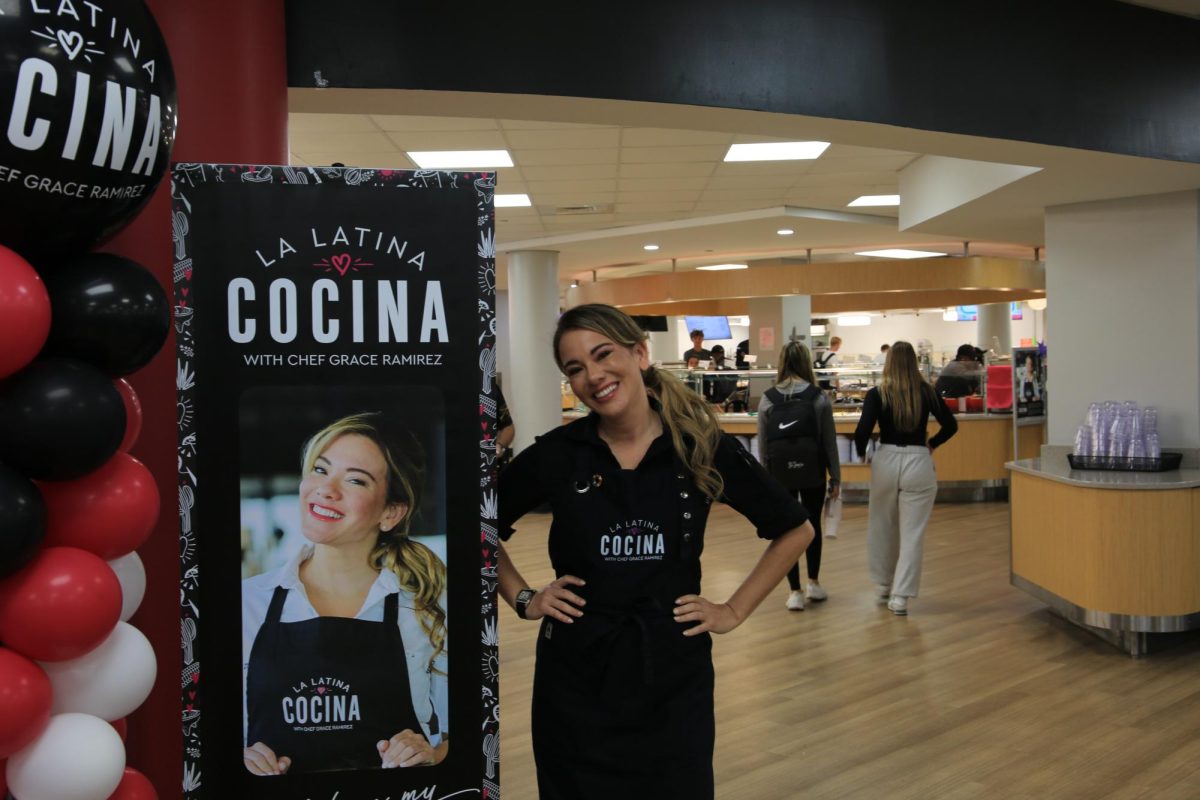I stepped under a small blue tent in front of the window of La Pearl Beauty Emporium in West Philadelphia to offer my words.
The salon, located at 3857 Lancaster Ave., about three miles from St. Joe’s campus, was the site of a poetry pop-up on Oct. 13. The pop-up was the last of four organized this fall by Marshall Kavanaugh of the West Philadelphia Community Poem, an initiative Kavanaugh started in order to give residents a way to cope with the pandemic.
Beneath the tent were four typewriters. Behind two, sat Philadelphia-based poets Cashmere Harper and Quentin Williams, who were creating poems-on-demand for members of the West Philadelphia community. The other two were for community members to add their own poems to two large scrolls being fed through the typewriters.
“We use typewriters to write [a] collective poem together on the topics of how we envision the future of the neighborhood, or
what we would like to see in the future [of] the neighborhood,” Kavanaugh said.
Kavanaugh expressed his hopes to publish select poems in a zine, a self-published work, generally with a small circulation. The community poem will be performed by community members on Oct. 27 at the New Africa Freedom Square in the nearby Belmont neighborhood of Philadelphia.
Teddy Poneman, community arts and grant manager, said the event was sponsored in part by the Philadelphia Office of Arts, Culture and the Creative Economy.
“One of our big missions is making sure that we’re supporting cultural events around the city and not just in Center City,”Poneman said. “Sometimes we don’t get as many literary arts applications, and so, when I saw a kind of interactive community-engaged poetry event, I was really excited.”
Although I enjoy writing poetry, before I could start adding my own poem to a scroll, I needed to figure out how to use a typewriter.
This was also the case for Cydney Brown, 2021-22 youth poet laureate of Philadelphia. She had attended a pop-up held Aug. 18 to write poems for passersby.
“The day of the event, I was really nervous because [the typewriter] was still something that was really new to me,” said Brown.
“But I was excited to use that as a method to write poems for different members of the community.”
At the event I attended, Cashmere and Quentin were writing poems based on topics given to them by residents passing by. People asked for poems about things that happened to them during the pandemic: transformation, growth, light, loving each other despite differences, partners, happiness, birthdays and grieving.
I decided to start with my own poem. Next to one of the typewriters was a prompt taped down to the table that read: “Type
your hopes and dreams, what would you like to see in your neighborhood?”
I sat for a moment to think about what I could even write. I’m from Reading, Pennsylvania. Philadelphia is only my neighborhood while I’m attending St. Joe’s. For inspiration, I looked at the poem ahead of mine on the scroll about a small city in a big world. Even though I am a temporary resident here, Philadelphia has become a place where I have found communities and
a home. I decided to write:
Not from here
Where will I go?
Where ever it is,
I hope it makes me know
How to fit in
such a big city
Where I am just a
small girl.
After I finished, I approached Cashmere with a topic about something that is so present in my life that I hardly notice it: the color pink. Cashmere wrote a poem for me in her journal, then typed it out on a piece of paper that she handed to me to keep.
“PINK”
I wonder if the heavens garden
has bloomed
which cause the sky to be pink
Pink is such
a soft yet bold color
makes it perfect for hair
no matter if it in the clouds
or your fashion
it will attract admiration
So Be PINK
For my second poem, I wanted something more personal. The first idea that came to mind was a problem I was having with friends at St. Joe’s.
I approached Williams with my topic.
“What’s the difference between gossip and news?”
“Well, how do you define news?” Williams asked me.
Williams’s question made me think. To be honest, I didn’t have an answer for him. I settled on “News informs people, and gossip
…”
I didn’t know how to finish my sentence.
“News is about collective information and facts. Gossip is just uninformed things people say to each other,” I said.
Unlike Harper, Williams opted to start without a journal and typed the words onto the page as I told him more about the prob-lem I was having.
“What’s New”
We must resist the urge
to appropriate news
We should not undermine f-acts
to validate group think
We must hold some things sacred
even under pressure
even when
understanding is
scarce
and the apple of clickbait
Dominates the web of
opinion are not always lies
but they certainly
are not news.
I took my poems and stood for a minute under the tent, thinking about the power of this event, this chance for Black Philadelphians like me to make sense of our world through our own and shared stories. All three poems, the one I wrote and the ones I received, were tangible proof I am understood, and I am heard.















































